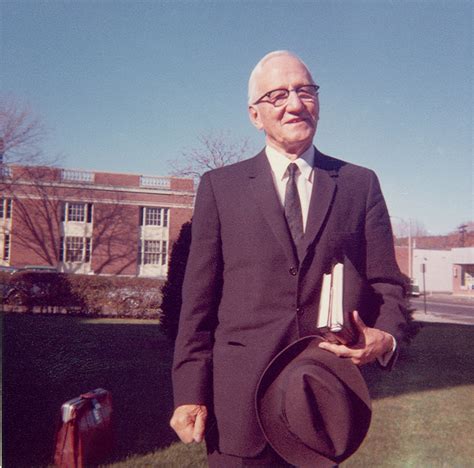A Quote by Tullian Tchividjian
When we imply that our works are for God and not our neighbor, we perpetuate the idea that God's love for us is dependent on what we do instead of on what Christ has done.
Related Quotes
The unbreakable bond between love of God and love of neighbor is emphasized. One is so closely connected to the other that to say that we love God becomes a lie if we are closed to our neighbor or hate him altogether. Saint John's words should rather be interpreted to mean that love of neighbor is a path that leads to the encounter with God, and that closing our eyes to our neighbor also blinds us to God.
God’s love sets us free from the need to seek approval. Knowing that we are loved by God, accepted by God, approved by God, and that we are new creations in Christ empowers us to reject self-rejection and embrace a healthy self-love. Being secure in God’s love for us, our love for Him, and our love for ourselves, prepares us to fulfill the second greatest commandment: To love our neighbor as ourselves.
The gospel is saying that, what man cannot do in order to be accepted with God, this God Himself has done for us in the person of Jesus Christ. To be acceptable to God we must present to God a life of perfect and unceasing obedience to his will. The gospel declares that Jesus has done this for us. For God to be righteous he must deal with our sin. This also he has done for us in Jesus. The holy law of God was lived out perfectly for us by Christ, and its penalty was paid perfectly for us by Christ. The living and dying of Christ for us, and this alone is the basis of our acceptance with God
The first great commandment was to love the Lord our God with all our hearts, might, mind and strength; and the second was like unto it, to love our neighbor as ourselves. And the best way in the world to show our love for our neighbor is to go forth and proclaim the gospel of the Lord Jesus Christ, of which He has given us an absolute knowledge concerning its divinity.
The Bible is full of God's promises to provide for us spiritually and materially, to never forsake us, to give us peace in times of difficult circumstances, to cause all circumstances to work together for our good, and finally to bring us safely home to glory. Not one of those promises is dependent upon our performance. They are all dependent on the grace of God given to us through Jesus Christ.
There are two gods. The god our teachers teach us about, and the God who teaches us. The god about whom people usually talk, and the God who talks to us. The god we learn to fear, and the God who speaks to us of mercy. The god who is somewhere up on high, and the God who is here in our daily lives. The god who demands punishment, and the God who forgives us our trespasses. The god who threatens us with the torments of Hell, and the God who shows us the true path.
There are two gods. A god who casts us off because of our sins, and a God who calls to us with His love.
Do we not see God at work in our circumstances? Dark times are allowed and come to us through the sovreignty of God. Are we prepared to let God do what He wants with us? Are we prepared to be separated from the outward, evident blessings of God? Until Jesus Christ is truly our Lord, we each have goals of our own which we serve. Our faith is real, but it is not yet permanent. And God is never in a hurry. If we are willing to wait, we will see God pointing out that we have been interested only in his blessings, instead of God Himself.
Though we are commanded to 'wash ourselves', to 'cleanse ourselves from sins', to 'purge ourselves from all our iniquities', yet to imagine that we can do these things by our own efforts is to trample on the cross and grace of Jesus Christ. Whatever God works in us by his grace, he commands us to do as our duty. God works all in us and by us.
Christ became our Brother in order to help us. Through him our brother has become Christ for us in the power and authority of the commission Christ has given him. Our brother stands before us the sign of the truth and the grace of God. He has been given to us to help us. He hears the confession of our sins in Christ's stead and he forgives our sins in Christ's name. He keeps the secret of our confession as God keeps it. When I go to my brother to confess, I am going to God.
Where we go wrong is that we bring along some ready-made idea of God, wherever we may have learned it, and then try to make Jesus Christ fit in with that idea of God. But if we take the idea of a revelation of God in Christ seriously, then we must be willing to have our understanding of God corrected and even revolutionized by what we learn in Jesus Christ.
Do we get what we want? Yes, we get what we want. God is that
loving. If we want isolation, despair, and the right to be our own
god, God graciously grants us that option. If we insist on using our
God-given pwer to make the world in our image, God allows us that
freedom; we have the kind of license to do that.that's how love
works. It cant be forced, manipulated, or coerced. It always leaves
room for the other to decide. God says yes, we can have what we want,
because love wins.
I saw full surely that ere God made us He loved us; which love was never slacked, nor ever shall be. And in this love He hath done all His works; and in this love He hath made all things profitable to us; and in this love our life is everlasting. In our making we had beginning; but the love wherein He made us was in Him from without beginning: in which love we have our beginning. And all this shall we see in God, without end.
The whole story of creation, incarnation, and our incorporation into the fellowship of Christ's body tells us that God desires us, as if we were God, as if we were that unconditional response to God's giving that God's self makes in the life of the Trinity. We are created so that we may be caught up in this, so that we may grow into the wholehearted love of God by learning that God loves us as God loves God.
God reminds us again and again that things between He and us are forever fixed. They are the rendezvous points where God declares to us concretely that the debt has been paid, the ledger put away, and that everything we need, in Christ we already possess. This re-convincing produces humility, because we realize that our needs are fulfilled. We don’t have to worry about ourselves anymore. This in turn frees us to stop looking out for what we think we need and liberates us to love our neighbor by looking out for what they need.
The love shown in Christ by our God to mankind should constrain all of us who are followers and disciples of Christ to do all in our power to see to it that the Message of Salvation is carried to those of our fellows for whom Christ Our Saviour was sacrificed but who have not had the benefit of hearing the good news.




































